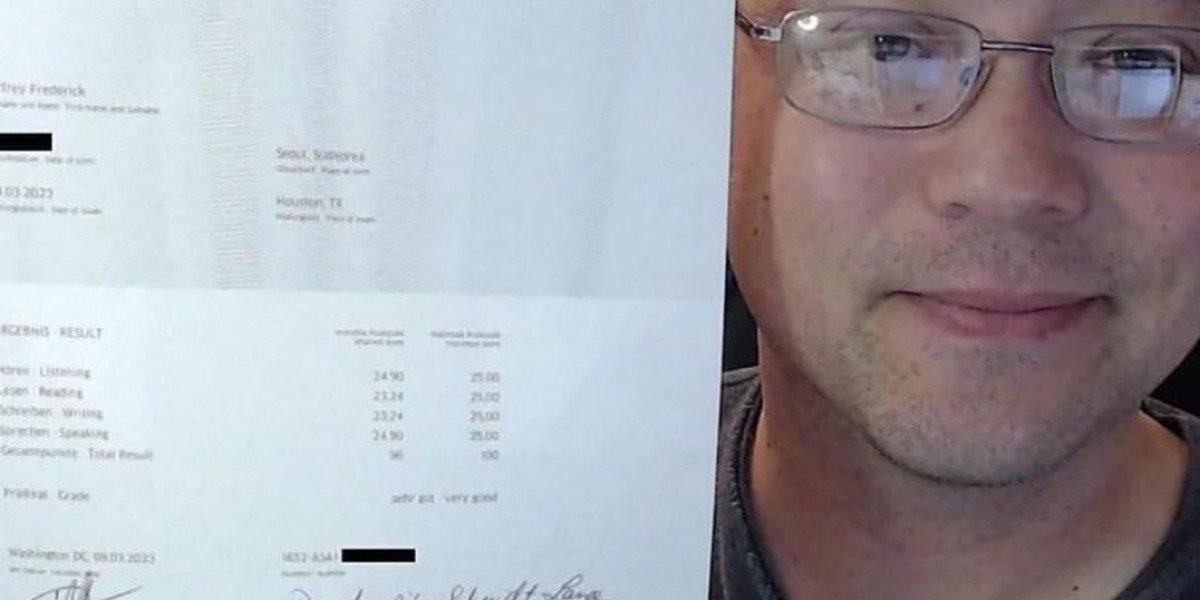Understanding the B1 Certificate: A Comprehensive Guide to Purchase and Implications
In a progressively globalized world, the ability to interact in more than one language is important. For non-native English speakers, obtaining a B1 Certificate in English as a Foreign Language can open doors to academic chances, improve task potential customers, and assist in social combination in English-speaking environments. This short article aims to supply an extensive overview of the B1 Certificate, including its significance, how to acquire it, and the process of buying a B1 Certificate.

What is a B1 Certificate?
The B1 Certificate becomes part of the Common European Framework of Reference for Languages (CEFR), which classifies language efficiency levels from A1 (novice) to C2 (proficient). A B1 level suggests that a person has an intermediate level of English proficiency. It symbolizes that the person can:
- Understand the bottom lines of clear basic speech on familiar matters.
- Offer with most situations that might emerge while traveling in a location where English is spoken.
- Produce easy linked text on topics that are familiar or of individual interest.
- Describe experiences, events, dreams, hopes, and goals, in addition to give quick factors and explanations for viewpoints and plans.
Numerous universities and companies require a B1 level certificate to show an individual's competency in the English language.
The Importance of a B1 Certificate
The B1 Certificate carries several advantages for individuals pursuing opportunities in English-speaking environments:
Educational Opportunities: Many universities and colleges need evidence of English efficiency for admission to their programs.
Employment Prospects: Companies typically look for candidates who can communicate successfully in English, especially in worldwide service environments.
Migration and Residency: Countries may require evidence of language proficiency for visa applications and residency licenses, making a B1 Certificate especially helpful.
Personal Development: Achieving a B1 level assists in much better social interactions, improves self-confidence in English-speaking settings, and cultivates a much deeper understanding of English-speaking cultures.
How to Obtain a B1 Certificate
Acquiring a B1 Certificate normally involves the following actions:
Assessment of Current Proficiency: Candidates should examine their existing level of English through available online tests or language assessment centers.
Register in Language Courses: Many organizations use English language courses specifically designed to assist students achieve B1 efficiency. Prospects can select from various formats, including in-person classes, online courses, or self-study programs.
Practice Speaking and Writing: Regular practice in speaking and composing English will assist candidates get ready for the B1 evaluation. Engaging with English media (books, films, podcasts) can also improve understanding and vocabulary.
Take a Language Proficiency Test: After comprehensive preparation, candidates need to take a standardized test that assesses their English abilities. Popular tests that provide a b1 zertifikat kaufen (Changviniegra.top) Certificate consist of:
- Cambridge English: Preliminary (PET)
- IELTS (International English Language Testing System) with a B1 level score
- TOEFL (Test of English as a Foreign Language) with specific scoring requirements
Get the Certificate: Upon passing the test, prospects will obtain their B1 Certificate. The certificate is usually legitimate for an indefinite duration but it's constantly advisable to validate specific requirements appropriate to universities or employers.
Is It Possible to Buy a B1 Certificate?
The question of purchasing a B1 Certificate develops for various factors. While there are avenues that enable individuals to get language certifications without going through the real assessment, these practices are not just dishonest however may bring legal consequences.
Why Buying a B1 Certificate is Not Recommended:
Legal Consequences: Falsifying educational qualifications can result in extreme legal charges, including losing job deals, dealing with deportation, or getting bans from universities.
Lack of Skills: A certificate acquired without real proficiency will not gear up a private with the necessary language abilities needed for individual, instructional, or professional success.
Credibility and Integrity: Engaging in deceptive practices can harm a person's track record and future potential customers considerably.
Rather of seeking shortcuts, individuals are encouraged to invest time and effort into genuinely attaining the B1 level of proficiency.
Tips for Preparing for the B1 Exam
For those committed to obtaining their B1 Certificate through real ways, preparation is essential. Here are some pointers:
Set Clear Goals: Establish a study schedule and specific language goals for each week.
Engage with Native Speakers: Joining conversation clubs or language exchange programs can significantly improve speaking abilities.
Use Language Apps: Incorporate language-learning applications (such as Duolingo, Babbel, or Memrise) into day-to-day practice.
Mock Tests: Practice with past exam papers or take mock tests to familiarize oneself with the exam format and timing.
Feedback and Improvement: Seek feedback from teachers or fluent speakers to identify locations of improvement.

Often Asked Questions (FAQs)
1. What is the cost of getting a B1 Certificate?
The expense varies based upon the screening body and place however generally varies from ₤ 100 to ₤ 300 for evaluation fees. Extra expenses may develop from preparatory courses.
2. For how long is a B1 Certificate legitimate?
While there is no main expiration date for language certificates, some organizations or employers might request recent evidence of proficiency, so it's a good idea to retake tests periodically.
3. Can I prepare for the B1 exam without a tutor?
Yes, self-study using online resources, media, and practice exercises is a feasible alternative. Nevertheless, a tutor can provide structured learning and personalized feedback.
4. What if I do not pass the B1 exam on my very first try?
Lots of candidates do not hand down their very first attempt. Utilize the feedback from the exam to focus on weaker areas, then retake the evaluation when ready.
5. Are there online options offered for taking B1-level tests?
Yes, numerous organizations now use online testing options for B1-level tests, supplying flexibility and ease of access for candidates.
The B1 Certificate holds considerable worth for individuals looking to improve their linguistic capabilities for education, employment, and social combination. While the temptation to buy a certificate may exist, the repercussions and ramifications far surpass the advantages. Real effort purchased learning English will not just lead to a B1 Certificate but will also offer the needed abilities to flourish in English-speaking environments.







